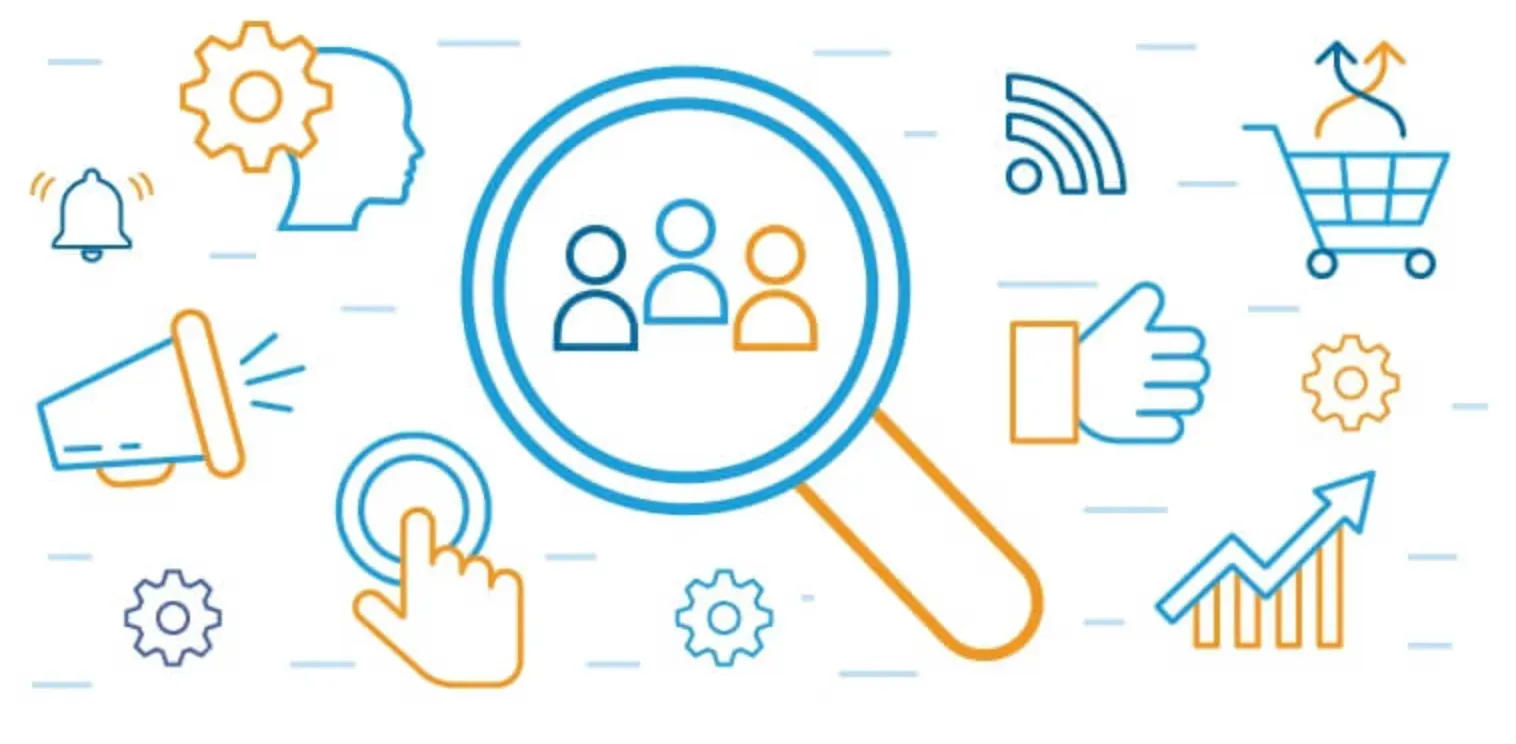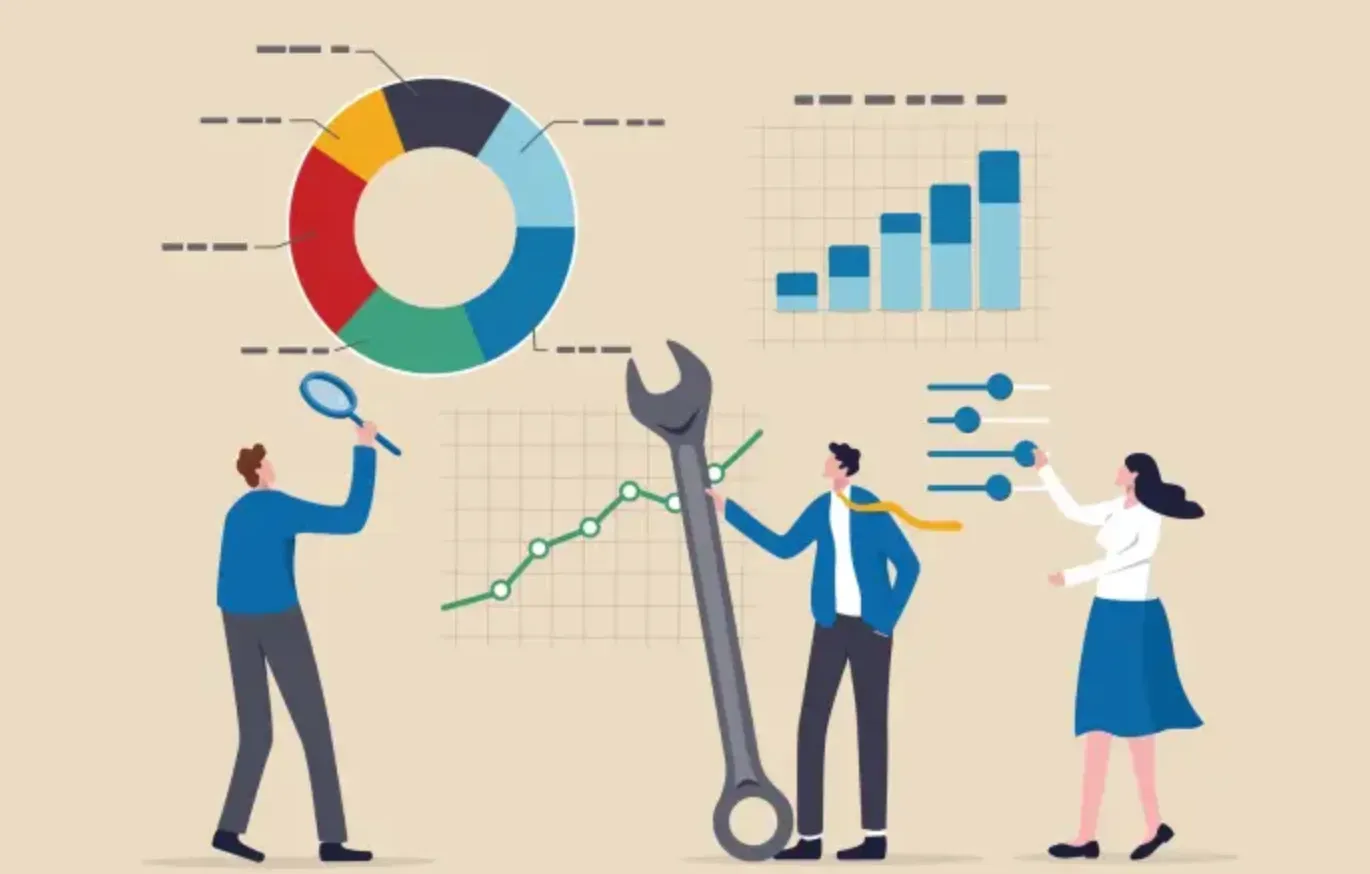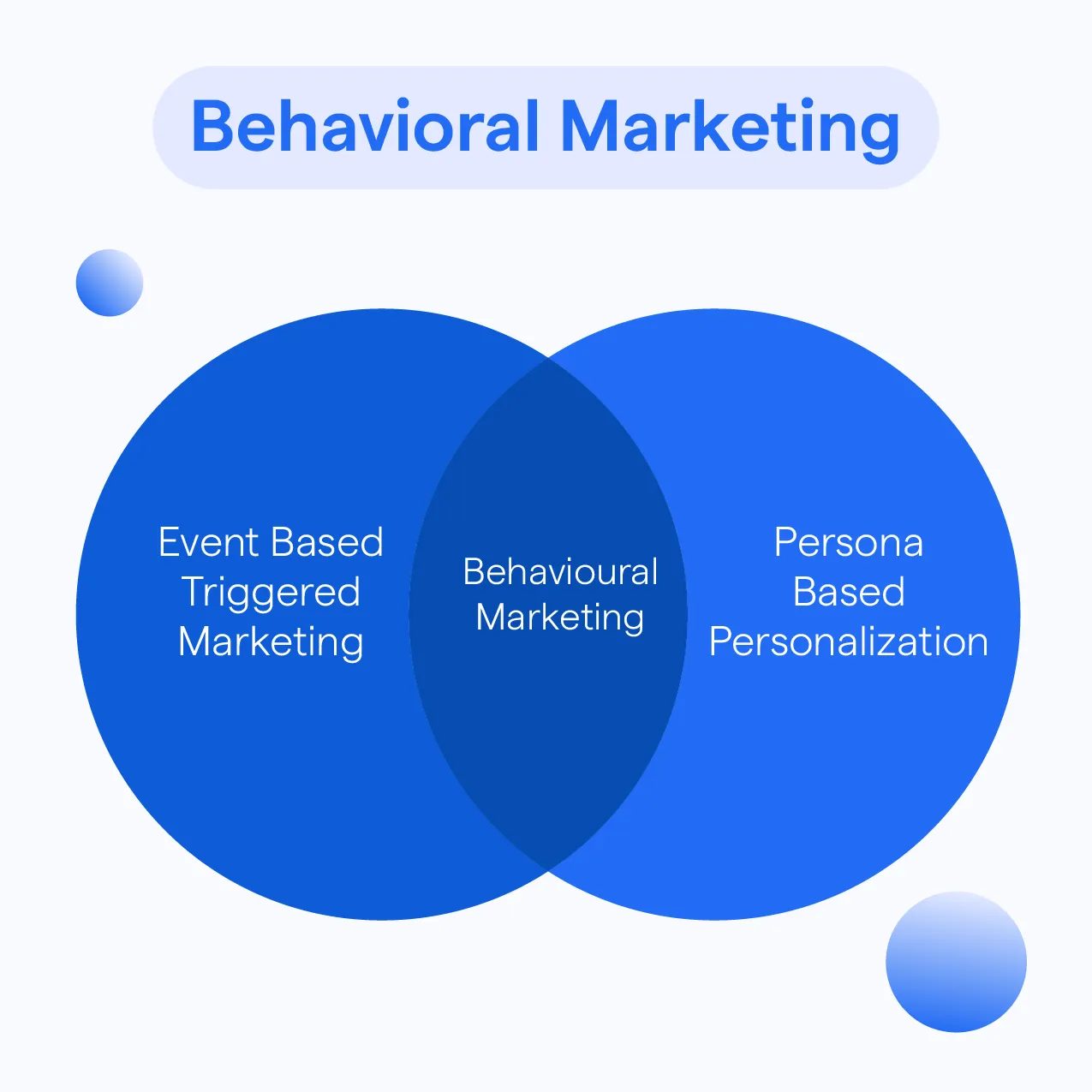What is Behavioral Marketing?
Behavioral marketing is a strategy that uses consumer behavior data to tailor advertising and marketing materials to specific audiences. Think of it as marketing with empathy; it's all about understanding the need behind the click or the swipe.
The Data Behind the Strategy
This approach is heavily data-driven, relying on insights from consumers' browsing history, purchase patterns, and interaction with marketing materials to predict future behavior and preferences.
Personalized Marketing at Its Peak
The goal is to offer advertisements or promotions that are so tailored to the consumer, they feel like they were made just for them. It's personalization taken to the next level.
How It Differs From Traditional Marketing
Unlike traditional marketing, which often casts a wide net hoping to catch a few fish, behavioral marketing targets specific individuals with messaging designed to resonate based on their past actions.
The Role of Technology
Technology plays a massive role in behavioral marketing, from tracking tools and data analytics platforms to AI and machine learning algorithms that predict future behavior.
Why Behavioral Marketing?
Understanding why behavioral marketing matters can help you appreciate its impact not just on businesses but on the consumer experience as well.
It’s All About Relevance
In a world bombarded with content, relevance is king. Behavioral marketing ensures that the content, ads, or offers consumers see are relevant to their interests and needs.
Increased Engagement
Personalized content doesn’t just sit there; it engages consumers, encourages interaction, and often, conversion.
Higher Conversion Rates
Behavioral marketing often leads to higher conversion rates. When you speak directly to a consumer’s needs, they’re more likely to act.
Building Consumer Loyalty
This tailored approach fosters a sense of being understood and valued, which can enhance loyalty and trust in a brand.
Efficient Use of Marketing Budgets
By focusing efforts on consumers most likely to engage, businesses can use their marketing budgets more efficiently, reducing waste and increasing ROI.
Who Utilizes Behavioral Marketing?
You might be wondering who's really using behavioral marketing. Let’s take a look at the varied landscape of its users.
E-commerce Giants
The likes of Amazon have mastered the art of behavioral marketing, using consumers' browsing and purchase history to recommend similar products.
Social Media Platforms
Platforms like Facebook and Instagram use behavioral data to tailor ads to users’ interests, increasing the chances of engagement.
SaaS Companies
Software-as-a-Service companies use behavioral marketing to understand how users interact with their software, tailoring communications to enhance user experience and retention.
Retailers (Online and Physical)
Retailers analyze in-store and online behaviors to offer personalized promotions and product recommendations.
Content Platforms
Streaming services and content platforms like Netflix use viewing habits to recommend new shows and movies.
How Does Behavioral Marketing Work?
Grasping how behavioral marketing works can give you insights into its effectiveness and why it's such a cornerstone of modern marketing strategies.

Data Collection
This is step one—gathering data on user behavior from website visits, app usage, social media interactions, and purchases.
Data Analysis
The collected data undergoes analysis to identify patterns, preferences, and potential future behaviors.
Segmentation
Consumers are segmented into groups based on similar behaviors and preferences.
Targeted Strategy Development
Marketing strategies are developed for these specific segments, ensuring that the messaging is as relevant and personalized as possible.
Implementation and Optimization
Campaigns are launched, and continuous data collection and analysis ensure strategies are optimized for effectiveness and evolving consumer preferences.
When is Behavioral Marketing Most Effective?
Timing and context play huge roles in the success of behavioral marketing strategies. Let’s talk about when it shines the brightest.
During High Buying Intent Periods
Behavioral marketing is gold during times when consumer buying intent is high, like holidays or sales seasons, as personalized marketing can help direct those ready-to-buy impulses.
For Product Launches
Leveraging behavioral data to introduce new products to likely interested consumers can significantly boost launch success.
Post-Purchase
Following up a purchase with related or complementary product suggestions can enhance customer value and satisfaction.
Abandoned Cart Scenarios
Retargeting users who've abandoned their carts with reminders or offers can often bring them back to complete their purchase.
Re-engagement Campaigns
Identifying users who've drifted and targeting them with personalized content can reignite their interest and engagement with the brand.
Best Practices in Behavioral Marketing
Doing behavioral marketing right means understanding not just the tools and techniques, but also the best practices that ensure its effectiveness and ethical usage.

Prioritize Data Privacy
In an era where data privacy concerns are sky-high, ensuring compliance with regulations like GDPR is not just good practice—it’s essential.
Focus on Value
Ensure that the personalization efforts genuinely offer value to the consumer, rather than just serving the brand’s interests.
Use Data Wisely
More data isn’t always better. Focus on actionable insights and data points that genuinely enhance consumer understanding.
Test and Learn
Always be in a cycle of testing, learning, and optimizing. What works today may not work tomorrow, so agility is key.
Be Ethically Responsible
Use behavioral data ethically, avoiding manipulative tactics that could erode trust and damage brand reputation.
Challenges in Behavioral Marketing
As with any strategy, behavioral marketing comes with its set of challenges to navigate.
Data Overload
The sheer volume of data can be overwhelming, making it hard to identify which data points are truly valuable.
Consumer Privacy Concerns
Navigating the tightrope between personalization and privacy invasion is complex and requires sensitivity and adherence to legal standards.
Keeping Up With Technology
The rapid pace of technological change means that today’s cutting-edge tool can quickly become tomorrow's old news.
Cross-Channel Coordination
Delivering a consistent, personalized message across multiple channels requires sophisticated coordination and data integration.
Analytics Complexity
Turning vast amounts of behavioral data into actionable insights can be a daunting task, requiring significant skills and resources.
Trends in Behavioral Marketing
Staying ahead of the curve means keeping an eye on emerging trends that are shaping the future of behavioral marketing.

AI and Machine Learning
The use of AI and machine learning is becoming more sophisticated, enabling even more precise targeting and personalization.
Voice Search and Commands
As the use of voice-activated devices grows, understanding how these interactions can inform behavioral marketing strategies is key.
Increased Focus on Behavioral Email Marketing
Tailoring email marketing efforts based on user behavior, rather than just demographic segmentation, is proving to be highly effective.
Privacy-First Strategies
The emphasis on privacy is leading to more innovative ways to personalize marketing efforts without infringing on consumer privacy.
Interactive Content
Leveraging interactive content to gather behavioral data in engaging, user-consent-driven ways is on the rise.
Frequently Asked Questions (FAQs)
How Does Behavioral Marketing Enhance Customer Engagement?
Behavioral Marketing targets users based on their past actions and preferences, leading to highly personalized content that boosts engagement.
Can Behavioral Marketing Predict Future Purchases?
Yes, by analyzing past behavior, Behavioral Marketing can forecast future actions and preferences, helping businesses tailor their offerings accordingly.
What Role Do Cookies Play in Behavioral Marketing?
Cookies track user activity across the web, providing data that powers behavioral marketing efforts by understanding individual preferences and behaviors.
How Does Behavioral Marketing Benefit E-commerce Websites?
E-commerce sites use behavioral marketing to recommend products, send tailored emails, and create personalized shopping experiences, increasing conversions and loyalty.
Is Behavioral Marketing Considered Intrusive by Consumers?
While it enhances personalization, some consumers may find it intrusive. Transparency about data use and offering opt-outs can help mitigate concerns.

